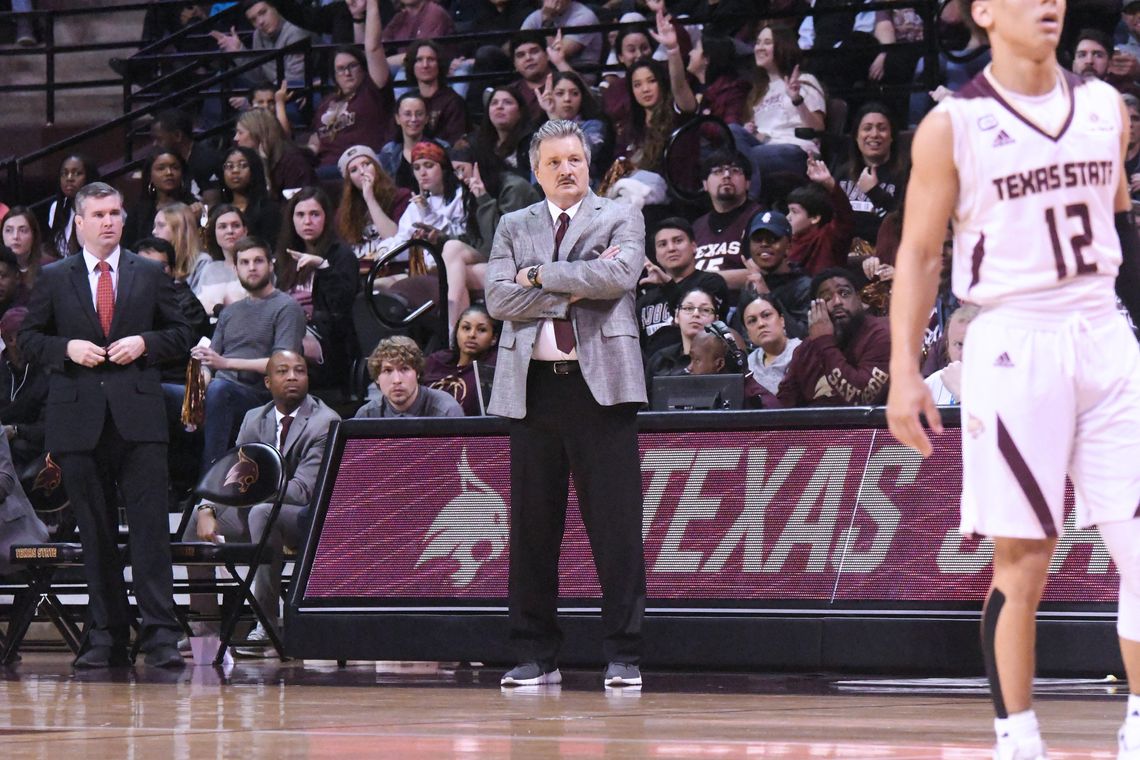It’s been nearly four weeks since former Texas State point guard Jaylen Shead first tweeted about his experience playing for head men’s basketball coach Danny Kaspar and the racially insensitive comments he had to endure.
Director of Athletics Larry Teis announced in a statement the next day after Shead’s June 4 tweet that the school was launching an investigation, and while many have since spoken out publicly in support of both Shead and Kaspar, there have been no specifics on who will be interviewed for the investigation or how long it might take. The only detail Teis was able to share was that, at his request, the case is being handled by the university’s Office of Equal Opportunity and Title IX.
“We are responsible for investigating any complaint that involves any sort of discrimination, such as sex discrimination or race discrimination,” said Alexandria Hatcher, J.D., who serves as the school’s Title IX coordinator. “Any of those issues that come on our campus are brought to our office and we investigate them and do an investigative report and then disseminate those reports to the proper parties.”








